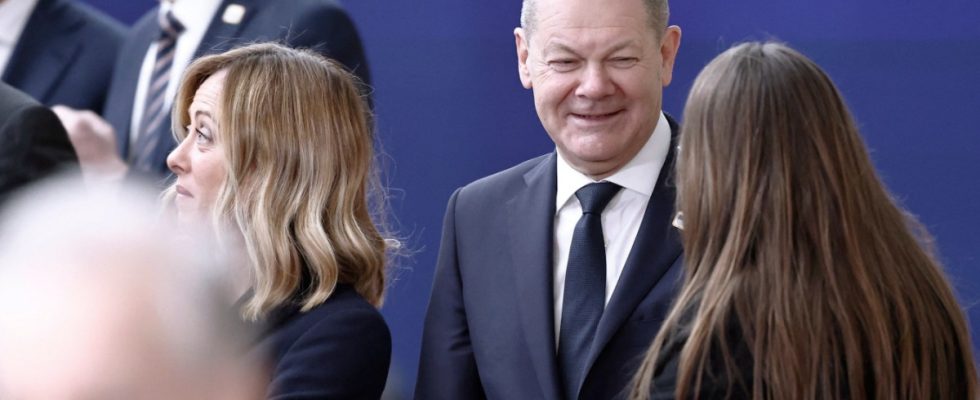For most people, there is a wide gap between self-perception and the perception of others; this is no different in politics. The heads of state and government of the European Union are currently experiencing it first hand. They pride themselves on overcoming the Corona crisis together, remaining united against the aggressor Vladimir Putin, and recently even finding an almost common position on the Gaza issue. And who thanks them?
Shortly before the European elections at the beginning of June, surveys show that the majority of Europeans are not satisfied with the course taken by their bosses on the big issues. But you don’t actually need any surveys to reach this conclusion. All you need to do is look at Europe’s streets, where many farmers are still protesting, as the self-appointed spearhead of the people who feel forgotten by EU politics.
Customs on sugar and chicken
Agriculture has become the antithesis of major Brussels politics. That’s why on Thursday and Friday of this week the heads of state and government not only talked at length about new military aid for Ukraine and about strengthening the European defense industry. The summit also sent a message to farmers: The EU will soon impose higher tariffs on Russian and Belarusian grain in order to relieve the burden on European farmers, but also on Ukrainian agriculture.
The plans, which have been discussed for a week, were presented by the EU Commission on Friday morning, accompanying the summit meeting. From now on, Russian imports will be subject to a tariff of 95 euros – up to 50 percent of the value of the goods at current prices. Most of them have so far been duty-free and have not been subject to sanctions against Russia. The European Union wanted to avoid at all costs the impression that it was endangering food security in the world.
The about-face has its origins in farmers’ protests against cheap competition from Ukraine. A few days ago, the EU states therefore agreed to impose a tariff on chicken, sugar, corn and several other agricultural products from Ukraine if a certain total quantity is exceeded. This does not go far enough for the Eastern European governments, but also for French President Emmanuel Macron. They are also demanding quotas for Ukrainian wheat. At the same time, Ukraine complains that the EU is abandoning the path of solidarity with these tariffs. That’s why the tariffs directed against Russia are now coming from Brussels as a relief attack, so to speak.
Farmers complain about falling grain prices
In order to take the edge off the decision in the eyes of the world, the Commission is keen to state: This is not a sanction. The export of Russian grain to the rest of the world is not affected. These are only tariffs for products that come into the EU. The legal justification is given as follows: “Destabilization” of the European internal market must be prevented in accordance with the rules of the World Trade Organization (WTO). Because Russia could use massive grain exports to the EU as a geostrategic weapon. In addition, in order to finance the war of aggression, wheat “stolen” in Ukraine is repeatedly re-declared as Russian and sold to Europe.
The claim that Russia could destabilize the European market seems daring. According to the Commission, Russia’s share of this market is so small that the tariffs would not lead to a significant increase in grain prices in Europe. The tariff against Russia would therefore hardly have any financial effect on the farmers, who are currently complaining about falling grain prices – after a high at the beginning of the Russian attack on Ukraine. The EU wants to send a message to them: The EU ensures that things are done fairly and that farmers should not pay the price for the Russian war of aggression.
Chancellor Olaf Scholz expressly welcomed the new tariffs on Russian goods after the summit in Brussels. He is obviously rather uncomfortable with the restrictions on Ukrainian agriculture that Macron so symbolically propagates. Scholz believes that the “excited debates” will soon subside again, because Ukraine’s influence on the European agricultural market is small. What is more important to him is the reform of the “support and regulation system” in agricultural policy. The purpose of agriculture is not to fulfill bureaucratic requirements, but to produce food, he said succinctly.
The struggle over agricultural bureaucracy will continue in Brussels in the next few days. The responsible ministers will discuss the weakening of the eco-rules proposed by the Commission. And the “Nature Restoration Act”, which many farmers find unreasonable, also appears to be on the brink again shortly before the final vote among the member states. Fear of farmers’ anger is wearing down some governments.

